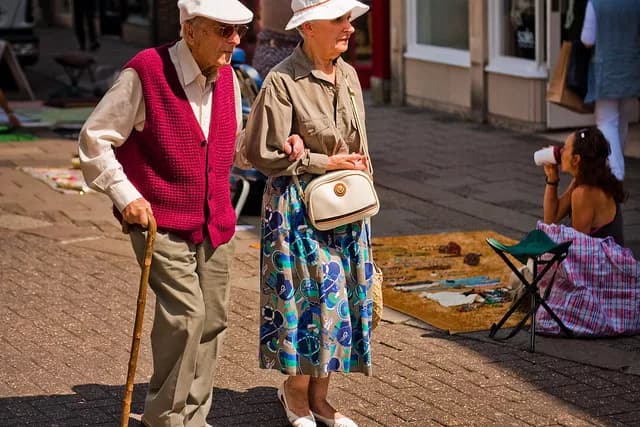
Leisure Activities Lower Blood Pressure In Alzheimer's Caregivers
Going for a walk outside, reading, listening to music -- these and other enjoyable activities can reduce blood pressure for elderly caregivers of spouses with Alzheimer's disease, suggests a study in Psychosomatic Medicine: Journal of Biobehavioral Medicine, the official journal of the American Psychosomatic Society. The journal is published by Wolters Kluwer.
"Greater engagement in pleasant leisure activities was associated with lowered caregivers' blood pressure over time," according to the report by Brent T. Mausbach, PhD, of University of California San Diego and colleagues. "Participation in pleasant leisure activities may have cardiovascular benefits for Alzheimer's caregivers."
The study included 126 caregivers enrolled in the UCSD Alzheimer's Caregiver Study, a follow-up study evaluating associations between stress, coping, and cardiovascular risk in Alzheimer's caregivers. The caregivers were 89 women and 37 men, average age 74 years, providing in-home care for a spouse with Alzheimer's disease.
As part of annual interviews over five years, the caregivers provided information on how often they engaged in various pleasant leisure activities. These ratings were analyzed for association with blood pressure over time, with adjustment for demographic and health factors.
The caregivers reported high levels of enjoyable activities -- most said they spent time outdoors, laughing, watching TV, listening to music, and reading or listening to stories. About half of caregivers said they exercised frequently.
Caregivers who more frequently engaged in pleasant leisure activities had lower mean arterial blood pressure (a measure of average blood pressure). In follow-up analyses, these activities were associated with a significant reduction in diastolic pressure (the second, lower blood pressure number), although not in systolic pressure (the first, higher number).
As expected, caregivers who exercised more frequently had lower blood pressure. However, other types of "more sedentary, reflective" activities also led to reduced blood pressure. These included reading, listening to music, shopping, and recalling past events.
Blood pressure also decreased after nursing home placement or death of the person with Alzheimer's disease. That was consistent with previous studies showing that caregivers' health improves after their caregiving duties end.
Being a caregiver for a disabled loved one is a highly stressful experience, associated with an increased risk of cardiovascular disease and death. Stress may contribute to high blood pressure, which is the strongest risk factor for cardiovascular disease. The new results suggest that leisure activities are a behavioral factor that can prevent the development of high blood pressure in Alzheimer's caregivers.
Dr. Mausbach notes that the study assessed both the frequency and enjoyment of activities. The premise is that rather than recommending certain activities to everyone, it's important for caregivers to enjoy the activities they do to receive benefit. While the study can't determine how many activities people should do, "We believe three to four enjoyed activities each week could have a modest impact on an individual's blood pressure," Dr. Mausbach commented. "From there, the more an individual can do, the better the impact."
The researchers have been conducting a clinical trial to examine the effect of a therapy to increase pleasant leisure activities. "We recognize caregivers may have a difficult time engaging in pleasant leisure activities because they are busy with their caregiving duties," said Dr. Mausbach. "So we work with caregivers to find activities they can more confidently engage in even when their spouse is present. We also help them monitor their use of time so they know the times during the day when they are most capable of doing activities. Further, if caregivers use respite services, they are in a perfect position to use some of their respite time to engage in these activities."
Materials provided by Wolters Kluwer Health: Lippincott Williams and Wilkins. Note: Content may be edited for style and length.
Disclaimer: DoveMed is not responsible for the accuracy of the adapted version of news releases posted to DoveMed by contributing universities and institutions.
Primary Resource:
Mausbach, B. T., Romero-Moreno, R., Bos, T., von Känel, R., Ziegler, M. G., Allison, M. A., ... & Márquez-González, M. (2017). Engagement in pleasant leisure activities and blood pressure: A 5-year longitudinal study in Alzheimer's caregivers. Psychosomatic Medicine. DOI: 10.1097/PSY.0000000000000497
Related Articles
Test Your Knowledge
Asked by users
Related Centers
Related Specialties
Related Physicians
Related Procedures
Related Resources
Join DoveHubs
and connect with fellow professionals

0 Comments
Please log in to post a comment.